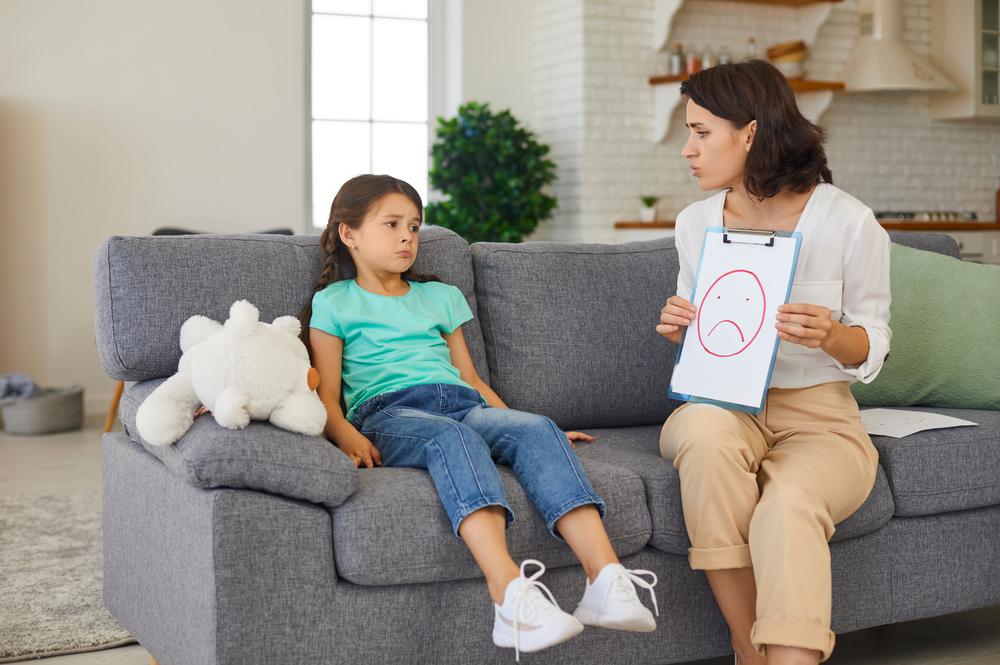Enhancing observation skills Easy Worksheets for Ages 3-9
6 filtered results
-
From - To
Boost your child's observational abilities with our "Enhancing Observation Skills Easy Worksheets" designed for children ages 3-9. These engaging, printable worksheets help young learners sharpen their visual awareness and critical thinking through fun activities. Each worksheet emphasizes various skills, including identifying differences, patterns, and details in images, ensuring a comprehensive learning experience. By fostering these essential skills early, you can equip your child with the tools they need for academic success. Perfect for use at home or in the classroom, these worksheets easily integrate into your child’s daily routine. Download now and watch your little ones thrive through observation!
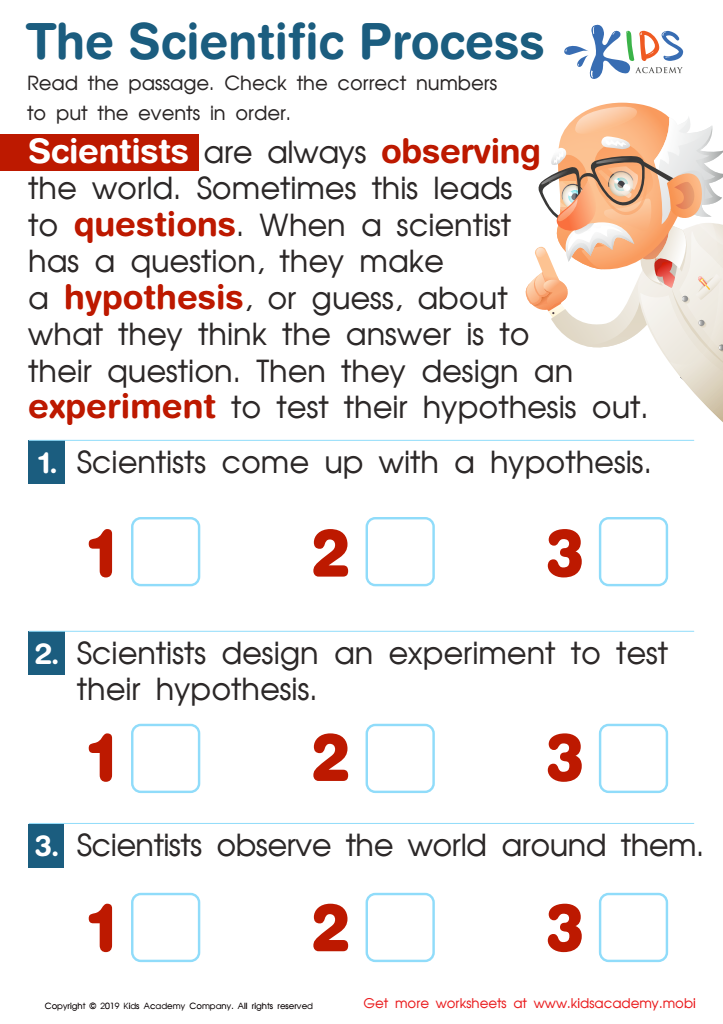

The Scientific Process Worksheet
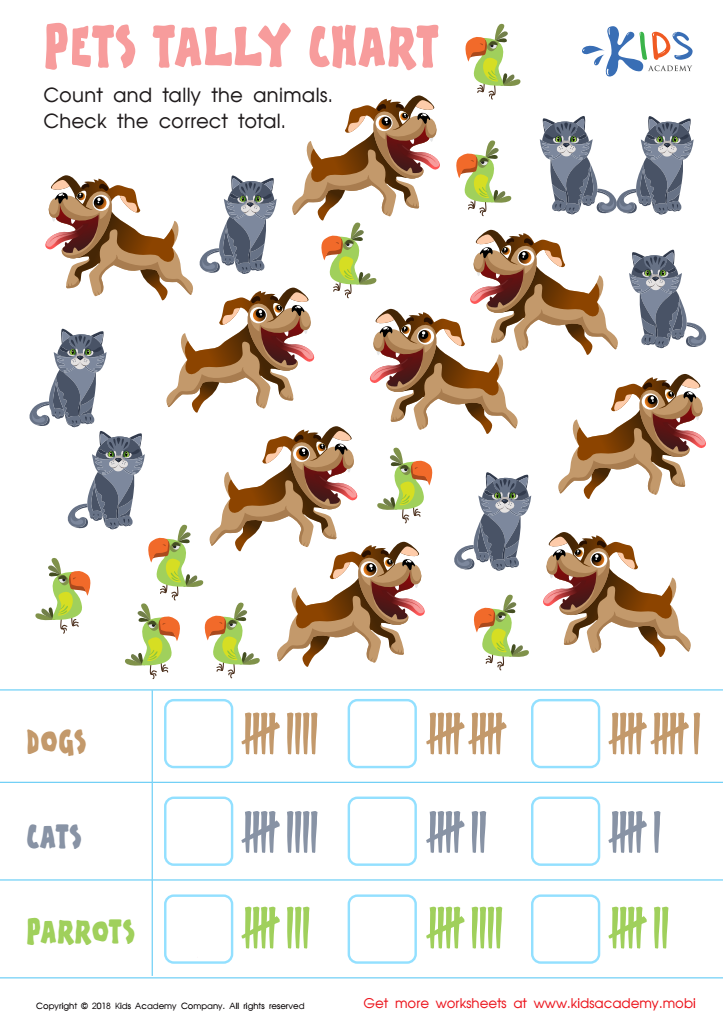

Pets Tally Chart Worksheet
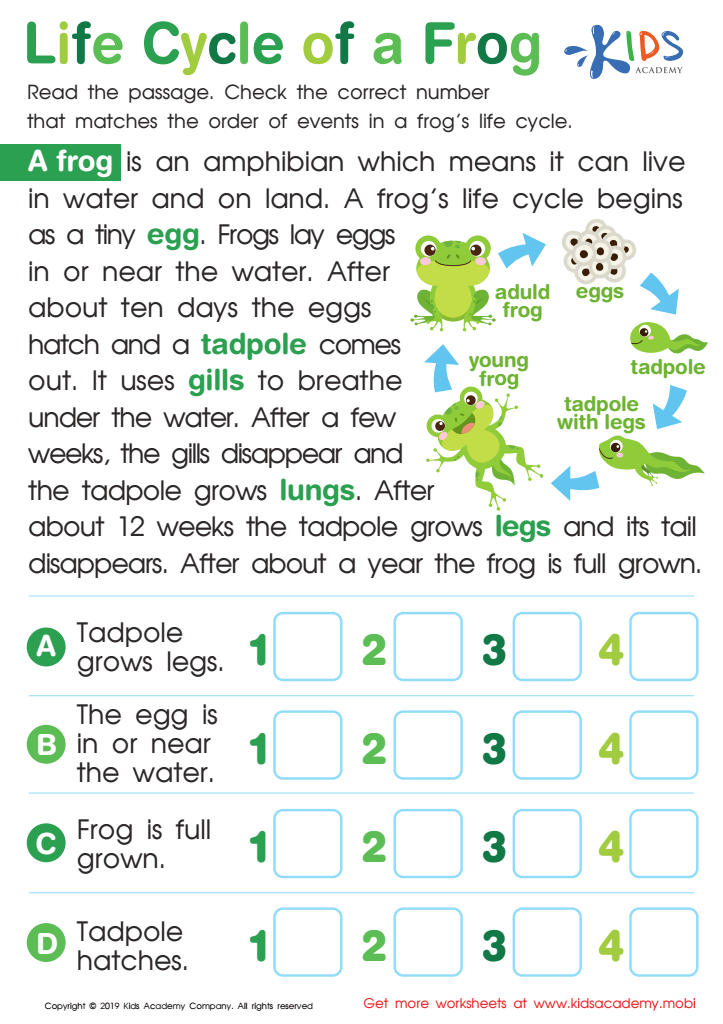

Life Cycle of a Frog Worksheet
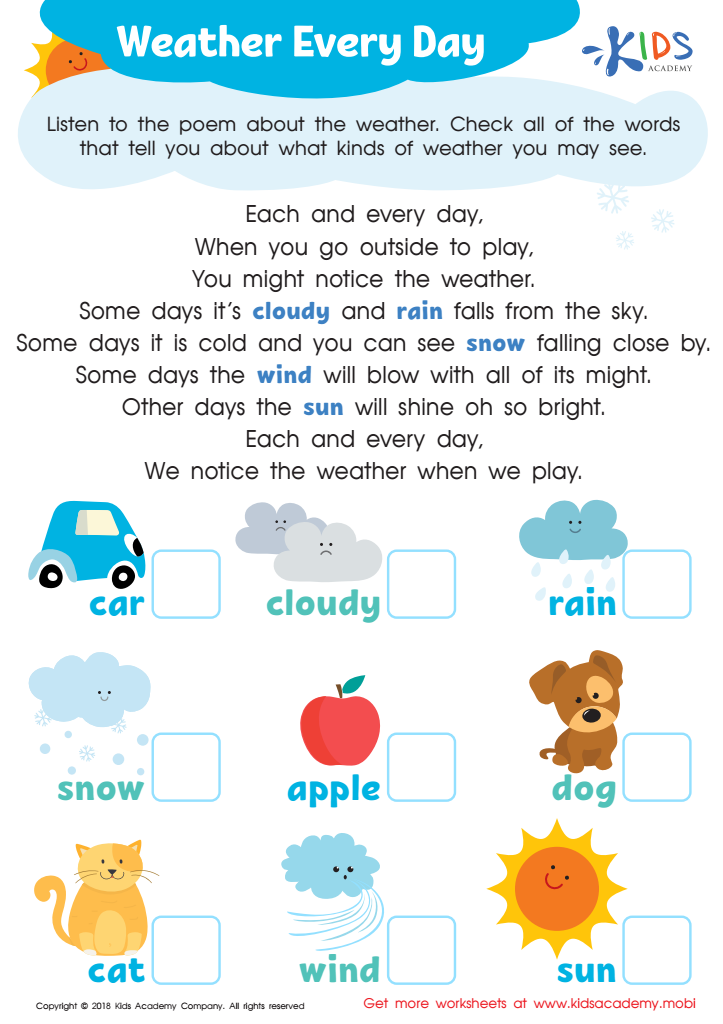

Weather Every Day Worksheet
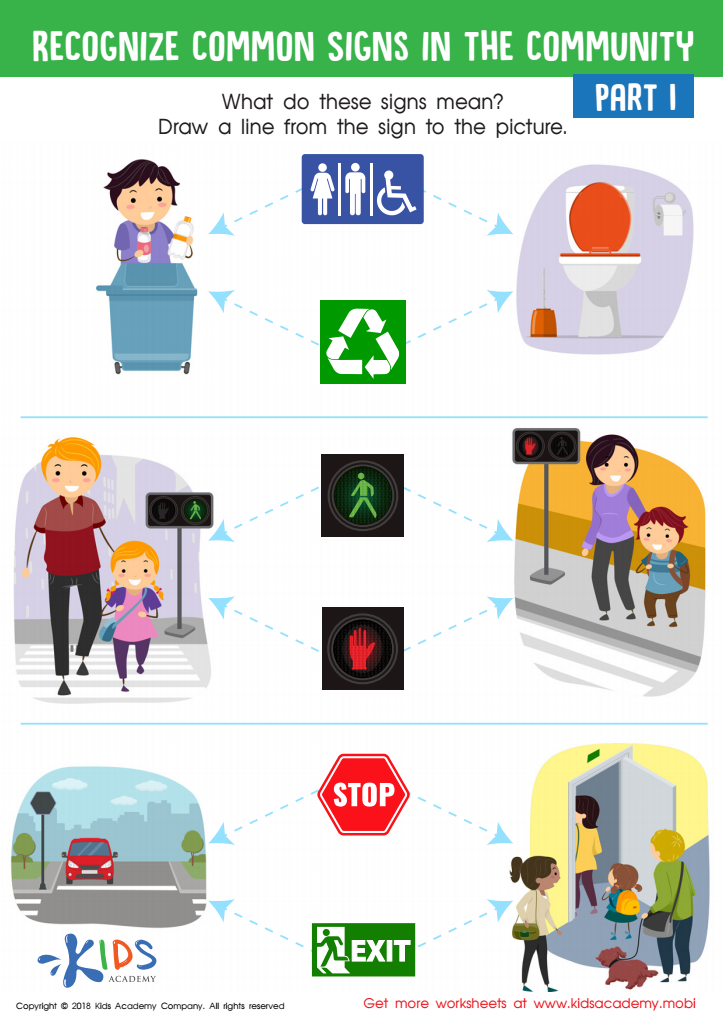

Recognize Common Signs: Part 1 Worksheet
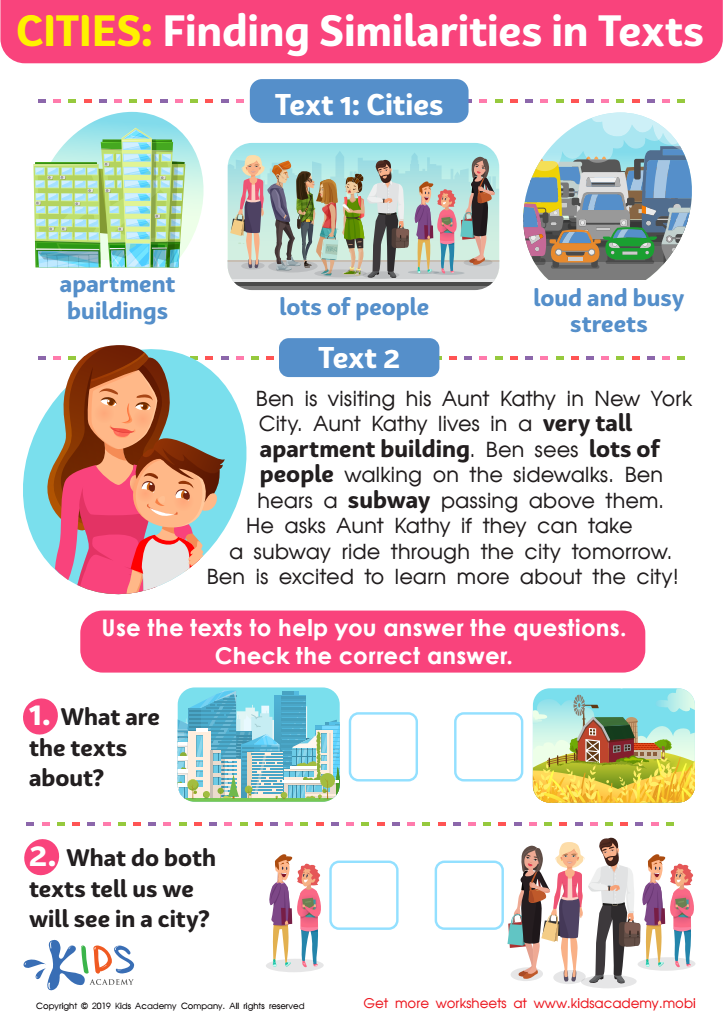

Cities: Finding Similarities Worksheet
Enhancing observation skills in children aged 3 to 9 is crucial for their development, and both parents and teachers play a vital role in this process. Observation is the foundation of learning, allowing children to engage with their environment, notice details, and make meaningful connections. By honing these skills, children enhance their ability to think critically, assess situations, and solve problems.
For parents, fostering observation skills supports successful interactions in everyday life, ensuring their children become confident and curious learners. Simple activities like nature walks, where children are encouraged to describe what they see, help boost their attention to detail and encourage conversations that deepen understanding.
Similarly, teachers can facilitate observation through structured activities and explorations in the classroom. When children are taught to observe closely, they become more actively engaged in lessons, leading to improved concentration and retention of information. This engagement also fosters social skills, as children learn to work collaboratively and communicate their findings, sharing insights with peers.
Ultimately, enhancing observation skills nurtures a child's emotional and cognitive growth, laying the groundwork for lifelong learning, creativity, and adaptability—qualities essential for their future success. By prioritizing observation skills, parents and teachers equip children with the tools they need to navigate the world around them.

 Assign to My Students
Assign to My Students


